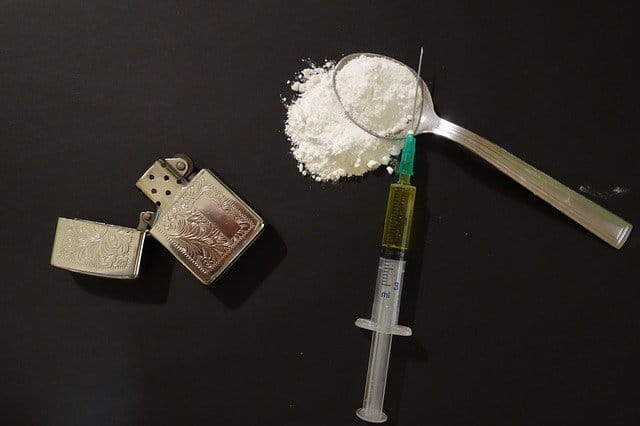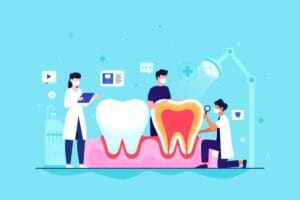Anyone can develop an addiction. Whether people are hooked on alcohol, drugs, gambling, sex, gaming, prescription medications, or other substances or behaviors, the ability to spot the signs of substance or behavioral addiction can drive the decision to find help and address addiction.
Addiction is classified as a mental health disorder and there are many ways of recognizing it. But it’s usually easier to notice the signs if you know what to look for in the first place. Spotting the signs not only helps you acknowledge the problem but can serve as a guide to finding treatment.

What Is Addiction?
The American Society of Addiction Medicine (ASAM) defines addiction as a chronic disease that affects brain function. The condition is also known as a substance use disorder (SUD).
It’s also a disease that carries a relapse rate of 40-60%. That’s because it can be difficult to control the urge to use addictive substances or engage in specific behaviors.
People with addictions often continue to seek the euphoria or pleasure they receive from drinking, using drugs, or compulsively doing certain things. They’ll persist even though the behaviors negatively affect their lives.
How Can Addiction Affect Your Life?
Often, addictions develop because people are using unhealthy methods of coping with trauma or stress. At first, drinking or drug use may feel like a good way to find relief and feel differently for a bit.
But eventually, your brain’s reward system becomes accustomed to the pleasurable feelings associated with that particular substance or activity. You build tolerance and are unable to stop using or doing those things.
An inability to control substance use, sex, gaming, eating, or other behaviors can affect your life in many ways, including producing
- Difficulties in school.
- Job or income loss.
- Troubled relationships.
- Increased risks of abuse, violence, and neglect.
- Physical or mental illnesses, such as anxiety or depression.
- Homelessness.
- Legal problems.
5 Signs It’s Time to Seek Treatment for Addiction
Physical and mental health providers can diagnose addictions. But despite the serious consequences, some people might not admit that they have addictions.
Addiction doesn’t often improve on its own. The longer you or your loved one takes to enroll in an inpatient or outpatient rehab center, the more difficult treatment could become. If you’re hesitant to take life-changing steps toward recovery, it can still help to understand some warning signs of addiction. Some signs include:
1. The Addictive Substance or Behavior Is Your Main Priority
You’re dependent or addicted to a substance or behavior if it gives you a high, a sense of euphoria. You’re preoccupied with it and give it more attention than anything else in your life. You might feel that you’re in control of the situation or deny that there’s even a problem. But actually, you spend most of your time compulsively obsessing about using drugs or alcohol or engaging in that particular behavior.
Because of your addiction, you might neglect school, work, and family responsibilities. Instead, you use drugs or alcohol or spend time with others involved in substance use. When you’re not using, you might feel withdrawn, depressed, and sleep for long periods, especially if you’re experiencing withdrawal symptoms.
2. Cravings Get the Better of You
Intense cravings or urges to drink, use drugs, or gamble might dominate your life. Changes in your brain could make it difficult to resist such urges. Surges of dopamine in your brain’s reward circuit could drive you to repeatedly seek pleasure from certain substances or activities.
Each time you succumb to your cravings, you reinforce the addictive behavior. Urges can be difficult to control, even if you’re willing to try. That explains why treatment is designed to help restore normal brain function and explore ways you can manage addiction triggers.
3. You’re Physically and Psychologically Dependent
When professionals diagnose addiction, they determine if people are physically and psychologically dependent and are becoming more tolerant. Increased tolerance and withdrawal symptoms are telltale signs of dependence.
Tolerance occurs when you find yourself needing more of a substance or behavior to produce the desired effect. If you’ve become tolerant, you might start injecting drugs or binge drinking in order to use more substances and feel satisfied.
Withdrawal symptoms, such as nausea or vomiting, could also occur if you’re addicted and try to quit. Although it seems counterintuitive, people struggling with addictions might drink more alcohol or use more drugs to relieve such symptoms.
4. Your Addiction Has Taken a Toll on Your Health
For some people, there’s a thin line between a hobby and a harmful habit. The latter might lead to addiction. But gaming, drug use, or alcohol abuse could cause physical and mental health consequences. High blood pressure, weight loss, and diseases of the heart, liver, lungs, and other organs are just a few of the possible physical effects.
Untreated addictions also increase the likelihood of mental health disorders, such as an eating disorder, anxiety, depression, and insomnia. Addiction-fueled behaviors, such as recklessness, aggressiveness, and fighting, can also lead to injury or disease and the need for medical attention.
5. Friends and Family Members Encourage You to Seek Help
Despite the adverse consequences, you might deny that you have an addiction. But if those who are near and dear to you express their concerns over your lifestyle, that’s a sign that it could be time to seek treatment.
Comprehensive addiction assistance often involves detoxification (detox) to eliminate toxins such as alcohol and drugs from your body, followed by mental health therapy. Many rehabs use cognitive behavioral therapy (CBT) to help you adopt positive ways to cope and avoid relapse.
You might still deny your problems or resist going to rehab, but it’s in your best interest to agree to treatment. Having the support of your loved ones can also help make the recovery journey less intimidating.
Give Yourself a Chance to Live an Addiction-Free Life
It’s possible to unlearn addictive behaviors, but it requires admitting that there’s a problem and taking accountability for it. Doing so creates a mindset that encourages healing and growth.
Long after formal treatment ends, you’ll need to continuously manage the urge to reengage in behaviors that can lead to relapse. But while recovery can be a lifelong journey, it’s also one worth taking.











